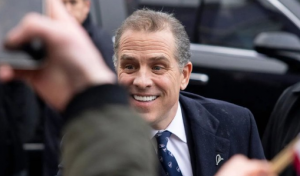The Union Budget 2022
should focus on boosting overall demand from rural consumption and invest more
in infrastructure instead of taking any sharp or sudden fiscal consolidation
steps as it can strangle the nascent and uneven recovery of the Indian economy.
Goldman Sachs in its pre-budget note said that the successive waves of
the pandemic have made it more difficult to reduce government debt as a share
of GDP in the medium-term.
Also Read | Budget 2022: Petroleum industry wants natural gas in GST regime
It thus penciled in a gradual fiscal consolidation with FY23 falling by
50 basis points to 6.3% from 6.8% in FY22 and set a target of reducing it to
4.5% by FY26.
The Wall Street brokerage says that even though pandemic-related
allocations will come down, the government should continue to focus on spending
for public welfare and increase capital expenditure to 12%.
Also Read | Budget 2022: All about Union Budget mobile app
The higher spending will mostly be covered by higher tax revenue in FY23
and deferred asset sales from the current year, helping reduce the deficit.
The
brokerage also expects the general government fiscal deficit to fall to 9.3% of
GDP in FY23 and 10.1% in FY22 in the account of stronger nominal GDP growth.
Also Read | Budget 2022: NGOs seek fund allocation for adolescents’, elderly’s health
India will be included in the global bond index by Q4 of 2022 if the
Budget removes capital gains tax and withholding tax on foreign bond
investments in the country. This can help the country to attract an additional
inflow of USD 30 billion in 2023, which again will lead to a lower deficit.
Also Read | Budget 2022: Banks’ body seeks reduction of tax-free FD tenure to 3 years
In the first
eight months of FY22, gross tax collections rose to 70% of budget estimates
which is the highest in the last 10 years. Income and corporate tax growth have
led to 66% on-year growth in direct taxes. Rising GST and excise duties on fuel
have led to a 39% growth in indirect taxes.
Also Read | Budget 2022: Here’s what consumer electronics makers expect
The brokerage expects gross tax revenue to surpass budget estimates by nearly 1.1%
of GDP in FY22 and non-tax revenue to be increased by 0.1% of GDP driven by
increased dividends from the RBI and higher deferred payments from telcos.
Also Read | Budget 2022: Assocham seeks reduction of customs duty on copper concentrate
The
disinvestment shortfall is expected to be around 0.6% of GDP and considering
all these aspects, total receipts are likely to be higher by only 20 basis
points of GDP in FY22 over the budget estimate.







